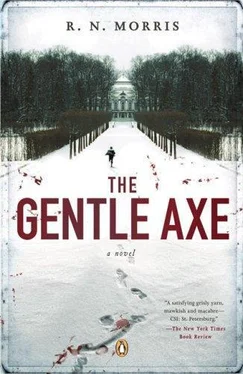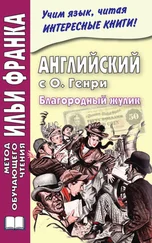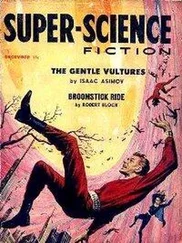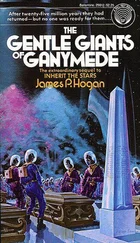R. Morris - The Gentle Axe
Здесь есть возможность читать онлайн «R. Morris - The Gentle Axe» весь текст электронной книги совершенно бесплатно (целиком полную версию без сокращений). В некоторых случаях можно слушать аудио, скачать через торрент в формате fb2 и присутствует краткое содержание. Год выпуска: 2008, ISBN: 2008, Издательство: Penguin Books, Жанр: Исторический детектив, на английском языке. Описание произведения, (предисловие) а так же отзывы посетителей доступны на портале библиотеки ЛибКат.
- Название:The Gentle Axe
- Автор:
- Издательство:Penguin Books
- Жанр:
- Год:2008
- ISBN:9780143113263
- Рейтинг книги:5 / 5. Голосов: 1
-
Избранное:Добавить в избранное
- Отзывы:
-
Ваша оценка:
- 100
- 1
- 2
- 3
- 4
- 5
The Gentle Axe: краткое содержание, описание и аннотация
Предлагаем к чтению аннотацию, описание, краткое содержание или предисловие (зависит от того, что написал сам автор книги «The Gentle Axe»). Если вы не нашли необходимую информацию о книге — напишите в комментариях, мы постараемся отыскать её.
The Gentle Axe — читать онлайн бесплатно полную книгу (весь текст) целиком
Ниже представлен текст книги, разбитый по страницам. Система сохранения места последней прочитанной страницы, позволяет с удобством читать онлайн бесплатно книгу «The Gentle Axe», без необходимости каждый раз заново искать на чём Вы остановились. Поставьте закладку, и сможете в любой момент перейти на страницу, на которой закончили чтение.
Интервал:
Закладка:
A murder investigation, that was what the policeman had said.
“Dangerous” was the word he had used.
In other words, Govorov was a murderer.
Tolkachenko swallowed back a dyspeptic, vinegary belch and read:
There has never been any doubt as to Protopopov’s guilt. On several occasions, in the presence of witnesses, he threatened to kill the victim. He was seen going into her apartment. A revolver was heard to discharge. When the police arrived, he was sitting calmly next to the dead body of his landlady with the murder weapon in his hand. He confessed immediately to the crime. And now, thanks jointly to the cleverness of his defense lawyer and the stupidity of the new juries-not to mention the incompetence of the police authorities-this man, a cold-blooded murderer, has walked free. In the process, the victim has been transformed into the criminal. Subject to the vilest slander and innuendo, none of it material to the case, her character has been publicly traduced. The inference we are meant to draw is that she deserved everything that came to her. Naturally, she cannot speak in her own defense. (You may reasonably ask: Why should she have to?) She is dead. Protopopov murdered her. He has never denied it. But this same Protopopov is acquitted, and his acquittal is greeted with rapturous applause. This may be the way it is done in France, but when the innocent become the guilty, when murderers walk free, none of us is safe.
Tolkachenko heard the street door click. He sat up with a jolt and strained to listen. Footsteps reverberated on the stairs. The old boards shrieked and cracked like fireworks. Tolkachenko’s senses tingled unpleasantly. He was used to listening to the comings and goings of the residents. He could recognize them each by their step. But this time it was difficult. Footfalls overlapped. He narrowed his eyes and discerned two separate step patterns. Was one of them Govorov’s? It was hard to tell. He imagined, in fact, two Govorovs climbing the stairs.
Tolkachenko’s arms began to ache from holding the paper still. He knew the footsteps were heading away from him. Even so, he was afraid of making the slightest sound. It could be a trick. Somehow the beat of his heart had fallen in rhythm with the steps. Every time there was a pause in the sounds of climbing, his heart seemed to stop beating. He imagined the two Govorovs turning around and coming back for him.
At last, a door above closed.
It was some time before Tolkachenko stirred. He folded the newspaper carefully and leaned forward to place it noiselessly on the floor. The throb of his pulse echoed in his head. His knees creaked as he rose from the seat. Partially digested pickled cucumbers gurgled in his stomach. He winced as if these minute interior noises were in danger of reaching the apartment above.
Tolkachenko moved slowly, lowering his feet with tense precision. He waited, listening, after each step. Then stood, listening, at his own door before grasping the handle with a grip that tightened the whole of his arm. He pushed his shoulder into the door as he eased it open.
Even in the dark he knew where to place his feet so that he could climb the stairs without setting off too many alarms from the floorboards. As he ascended, the low rumble of voices grew louder.
A light showed under Govorov’s door. The voices he had heard were coming from inside. Tolkachenko couldn’t make out what was being said, but he recognized Govorov’s booming theatrical bass. There was one other man in there, he judged, whose voice was higher and lighter. They seemed to be arguing, but there was something detached, almost disjointed, about their exchange. It had not reached the point where both parties were shouting over each other.
Without questioning what he was doing, Tolkachenko took the heavy ring of keys from his pocket and fumbled for the key to Govorov’s door. The metallic jangling prompted a break in the discussion within. But Tolkachenko moved quickly. He thrust the key into the lock and turned it. Then he slipped it off the chained ring and stepped back. He turned the key in the door so that it was at a slight angle to the keyhole. He heard footsteps hurry toward him. The door shook in the frame.
“Wha’s this?” came Govorov’s slurred cry.
“Murderer!” shouted Tolkachenko back.
“What are you talking about, you old fool? You’ve got no idea what you’re talking about. It’s not me who’s the murderer. Besides, you can’t lock me in.”
Tolkachenko now heard Govorov try to insert his own key into the lock. But the keyhole was of course blocked.
“This is an outrage!”
“I’ll tell you what an outrage is. Murder.”
“There he is again with his murder. Good heavens! All he ever talks about is murder. Have you ever heard such a thing?” But there was no answer from whoever was in the apartment with Govorov.
“The police were here,” cried Tolkachenko. “That’s what I’m talking about. The police were here, looking for you. Let them come back and decide. That’s what I say.”
“Very well, let them come. I have nothing to-” Govorov’s speech decayed abruptly into a strangled scream. There was a heavy, complicated crash, which resonated musically at the end. Now Tolkachenko heard a desperate thrashing about as if there was a struggle going on inside. Then a stifled gurgling of fluid in flesh and a panicked gasping for breath that would not come. It was a sound he could barely accept as human in origin. He wanted to run from it, to get as far away from that sound as he could. And yet the terrible novelty of it held him.
Then it stopped.
There was only silence now, or rather an oppressive buzzing emptiness.
Tolkachenko rapped his knuckles hesitantly on the door. When that produced no answer, he called out: “Hey! You! Konstantin Kirillovich! What are you up to?”
Tolkachenko heard footsteps behind him, coming down from the landing above. He turned and blinked into the gloom. At the same moment the door from the apartment across the landing opened, leaching a soft yellow light. Iakov Borisovitch, the young civil servant who lived there, peered out nervously. The footsteps on the stairs had stopped. Whoever was there seemed to be hanging back.
“Leonid Simonovich?” Iakov Borisovitch’s face was white, his eyes wide with fear. He was a sickly, nervous young man at the best of times.
“Iakov Borisovitch! You must go to the police station on Stolyarny Lane. Alert Lieutenant Salytov. Tell him that Tolkachenko sent you. Tell him I have captured Govorov.”
“You have captured Konstantin Kirillovich? But why?”
“There isn’t time to explain that now. You must go! Immediately!”
“But Leonid Simonovich, I’m unwell. I couldn’t go to the ministry today. As you can see”-Iakov Borisovitch stepped out onto the landing-“I’m still in my dressing gown.”
“You must get dressed. It’s the middle of the afternoon. You shouldn’t be in your dressing gown in the middle of the afternoon.”
“But I’m not well. It’s the old problem. Nerves. I’m feeling terrifically depressed.”
“Well, you must pull yourself together and go to the police station. Otherwise…he will murder us all.”
There was a strange sound, a kind of rasping hiss, from the darkness above them. Iakov Borisovitch leaped back into his apartment.
“What was that?”
“Who’s there?” Tolkachenko called up the stairs.
There was no answer.
“You must go,” Tolkachenko insisted to Iakov Borisovitch. “Besides, I believe you will be safer at the police station than here.”
There was a moment while Iakov Borisovitch took this in. Then he nodded and hurried back inside.
As soon as the door was closed, the landing was plunged back into darkness. The footsteps on the stairs began again. Instinctively, Tolkachenko stepped back and pressed himself against the wall. He was able to make out an indistinct figure as it stepped down onto the landing, but the features remained obscure. The figure seemed to turn toward him and then bow. “Good day to you” came from it, in a light, ironic, and half-familiar voice.
Читать дальшеИнтервал:
Закладка:
Похожие книги на «The Gentle Axe»
Представляем Вашему вниманию похожие книги на «The Gentle Axe» списком для выбора. Мы отобрали схожую по названию и смыслу литературу в надежде предоставить читателям больше вариантов отыскать новые, интересные, ещё непрочитанные произведения.
Обсуждение, отзывы о книге «The Gentle Axe» и просто собственные мнения читателей. Оставьте ваши комментарии, напишите, что Вы думаете о произведении, его смысле или главных героях. Укажите что конкретно понравилось, а что нет, и почему Вы так считаете.












